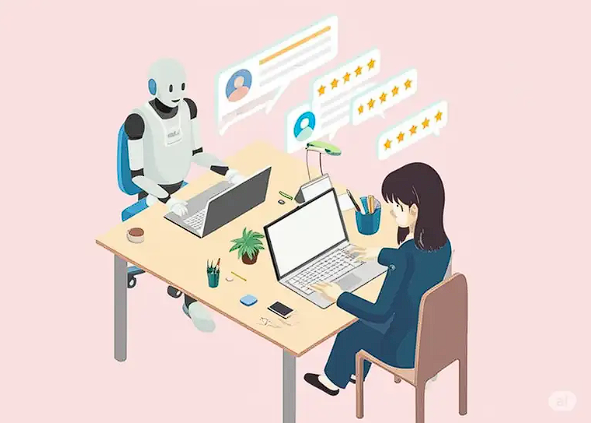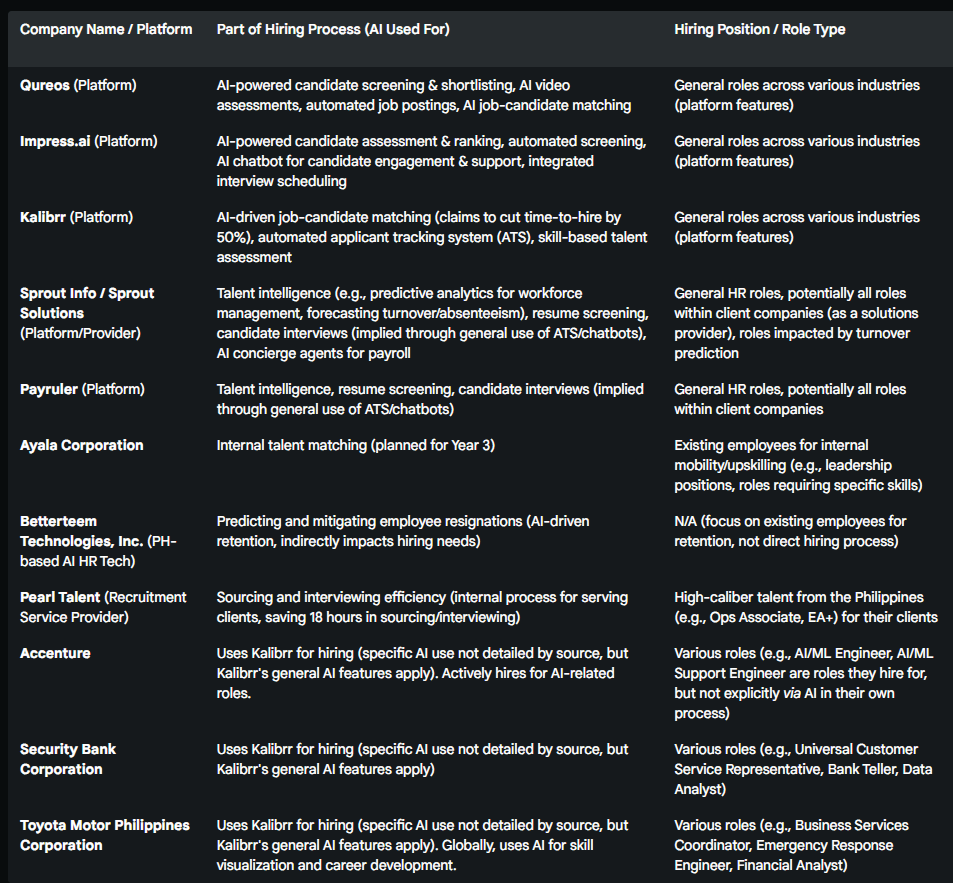Philippines Companies Using AI in Hiring

Image Credit: Roger Filomeno
Companies in the Philippines are adopting Artificial Intelligence (AI) to address high employee turnover (15.9% in 2023) and the significant time HR professionals spend on administrative tasks. AI offers potential improvements of up to 20% in recruitment efficiency and a 50% reduction in time-to-hire.
AI in the Hiring Funnel
AI is being deployed across the recruitment process:
- Sourcing: Platforms like Qureos automate job postings to multiple boards.
- Screening: Tools like Impress.ai, Kalibrr, and Manatal use AI resume scanners to rank applicants against hiring criteria.
- Assessments: HireVue analyzes video responses for soft skills, while chatbots (Olivia, Gemini) and platforms like GoodTime automate interview scheduling.
- Matching: Algorithms in software like Sprout Info and Payruler identify candidates with high success probability.
Companies Adopting AI
A summary of companies in the Philippines utilizing AI in hiring:

The Risk of Algorithmic Bias
A critical challenge is the potential for AI to favor “average” candidates and overlook exceptional talent.
AI systems trained on historical data can perpetuate past biases. In the Philippines, this could mean screening out candidates based on surnames or gender if those groups were historically underrepresented.
Furthermore, algorithms designed to match a “predefined fit” inherently select for conformity.
- Overlooking Innovation: Candidates with non-traditional backgrounds or unique skills may be filtered out.
- Homogeneity: Selecting for the “statistical average” creates a workforce lacking diverse perspectives.
Experts advocate for AI as a support tool, not a decision-maker. Human recruiters remain essential for assessing potential and nuance that algorithms miss.
Inspired by “Is AI bias hurting Filipino job seekers?” by Patrick Rowell Quintos.
Last modified: 23 Jan 2026